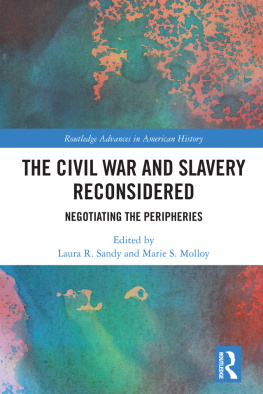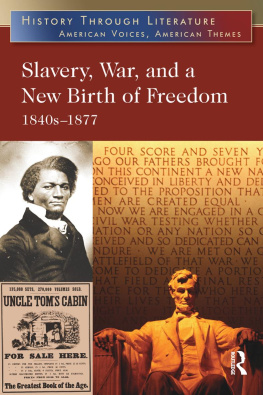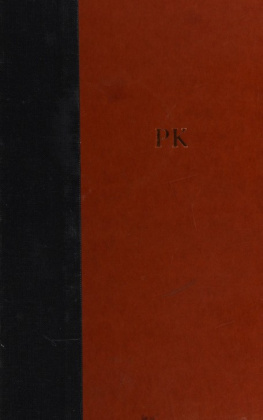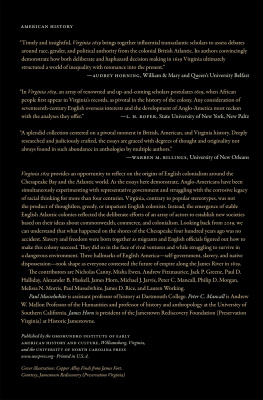The Civil War and Slavery Reconsidered
Following the suggestion of the historian Peter Parish, these essays probe the edges of slavery and the sectional conflict. The authors seek to recover forgotten stories, exceptional cases and contested identities to reveal the forces that shaped America in the era of the Long Civil War, c. 18301877. Offering an unparalleled scope, from the internal politics of Southern households to transatlantic propaganda battles, these essays address the fluidity and negotiability of racial and gendered identities, of criminal and transgressive behaviors, of contingent, shifting loyalties and of the hopes of freedom that found expression in refugee camps, courtrooms and literary works.
Laura R. Sandy is Lecturer in the History of Slavery at the University of Liverpool, UK and Co-Director of the Centre for the Study of International Slavery.
Marie S. Molloy is Lecturer in American History at Manchester Metropolitan University, UK.
Routledge Advances in American History
Public Health and the US Military
A History of the Army Medical Department, 18181917
Bobby A. Wintermute
Exploring the Next Frontier
Vietnam, NASA, Star Trek and Utopia in 1960s and 70s American Myth and History
Matthew Wilhelm Kapell
Americas Vietnam War and Its French Connection
Frank Cain
Famine Irish and the American Racial State
Peter D. ONeill
The Disinformation Age
The Collapse of Liberal Democracy in the United States
Eric Cheyfitz
After American Studies
Rethinking the Legacies of Transnational Exceptionalism
Jeffrey Herlihy-Mera
The White House and White Africa
Presidential Policy Toward Rhodesia During the UDI Era, 19651979
Eddie Michel
The Civil War and Slavery Reconsidered
Negotiating the Peripheries
Edited by Laura R. Sandy and Marie S. Molloy
For more information about this series, please visit: www.routledge.com/Routledge-Advances-in-American-History/book-series/RAAH
The Civil War and Slavery Reconsidered
Negotiating the Peripheries
Edited by Laura R. Sandy and Marie S. Molloy
First published 2019
by Routledge
52 Vanderbilt Avenue, New York, NY 10017
and by Routledge
2 Park Square, Milton Park, Abingdon, Oxon, OX14 4RN
Routledge is an imprint of the Taylor & Francis Group, an informa business
2019 Taylor & Francis
The right of Laura R. Sandy and Marie S. Molloy to be identified as the authors of the editorial material, and of the authors for their individual chapters, has been asserted in accordance with sections 77 and 78 of the Copyright, Designs and Patents Act 1988.
All rights reserved. No part of this book may be reprinted or reproduced or utilised in any form or by any electronic, mechanical, or other means, now known or hereafter invented, including photocopying and recording, or in any information storage or retrieval system, without permission in writing from the publishers.
Trademark notice : Product or corporate names may be trademarks or registered trademarks, and are used only for identification and explanation without intent to infringe.
Library of Congress Cataloging-in-Publication Data
A catalog record for this book has been requested
ISBN: 978-0-367-18122-2 (hbk)
ISBN: 978-0-429-05960-5 (ebk)
Typeset in Sabon
by Apex CoVantage, LLC
To
Jarvie
Contents
- PART I
Negotiating Perceptions of Slavery, Civil War and the Confederacy - PART II
A Stable Society? Transgressive Behaviors and Lives on the Peripheries - PART III
African American Experiences of Emancipation and Freedom Reconsidered
- PART I
Negotiating Perceptions of Slavery, Civil War and the Confederacy - PART II
A Stable Society? Transgressive Behaviors and Lives on the Peripheries - PART III
African American Experiences of Emancipation and Freedom Reconsidered
Guide
We would like to thank the David Bruce Centre for American Studies at Keele University for generously funding and hosting the wonderfully collegiate Civil War and Slavery colloquium that inspired this edited collection. It was a stimulating and intellectually challenging event. We are grateful to all of the participants for such lively and engaging debate. Furthermore, we would like to thank the authors for their time and energy in producing such thought-provoking and innovative work.
Gervase Phillips and Emily West deserve special recognition. Gervase offered tireless encouragement and critique and has been committed to the project since the outset. Emily West offered crucial feedback in the latter stages on the central themes of this collection. Thank you!
The editorial team at Routledge has been extremely supportive and responsive, which has made this a seamless process. We would also like to give a mention to David Fischer for his generous help, providing tech support and reassuring banter along the way.
Finally, a very big thank you to family, friends, colleagues and pets for both academic and non-academic support.
Laura R. Sandy and Marie S. Molloy
Negotiating the Peripheries
Laura R. Sandy and Marie S. Molloy
Thirty-five years ago, the distingished historian of nineteenth-century America Peter Parish issued a clarion call for scholars to investigate the edges of slavery. He argued for a more thorough and a more nuanced understanding of the multifaceted nature of the Souths peculiar institution, achieved through the exploration of unusual and exceptional cases, forgotten episodes, marginalized individuals and practices and behaviors that challenged the laws, customs and norms of chattel slavery. This call remains compelling. Historians, especially historians of institutions that persist for centuries and shape the lives of millions, often paint with the broadest of brushes. As we generalize and systematize, how much telling, even crucial , detail do we lose? The contributors to this volume aim to advance the process of discovering and restoring that detail and, by so doing, shift the focus of historiography to the contested peripheries of a peculiarly volatile age, where laws, customs and norms were, in actuality, being constantly negotiated, challenged and refashioned.
Peter Parish was not, of course, a historian simply of slavery but of the Civil War era in toto . Here, too, we seek to apply not just his methodology but reflect his scope. Many conflictspersonal, social, legal, national and internationalwill figure in this collection, but the sectional conflict is the essential and unifying context. In terms of our temporal focus, our understanding of that struggle is shaped by that useful trend of considering this period as the Long Civil War. The years of conflictmyriad and diverse in form but interlockingdid not begin at Fort Sumter or end at Appomattox. They encompassed the antebellum, the period of conventional military struggle, the contested process of Reconstruction and the emergence of the Jim Crow South. Thus, Paul A. Cimbala and Randall M. Miller, editors of an outstanding recent collection of essays on Reconstruction, note that a new generation of scholars has pushed the beginnings of Reconstruction ever backwards into the antebellum period. They see Reconstruction as a process on many fronts, working out variously in many places through the war and its aftermath.aftermath as the meaning and legacies of the war are once again being debated beyond the confines of university seminar rooms.







